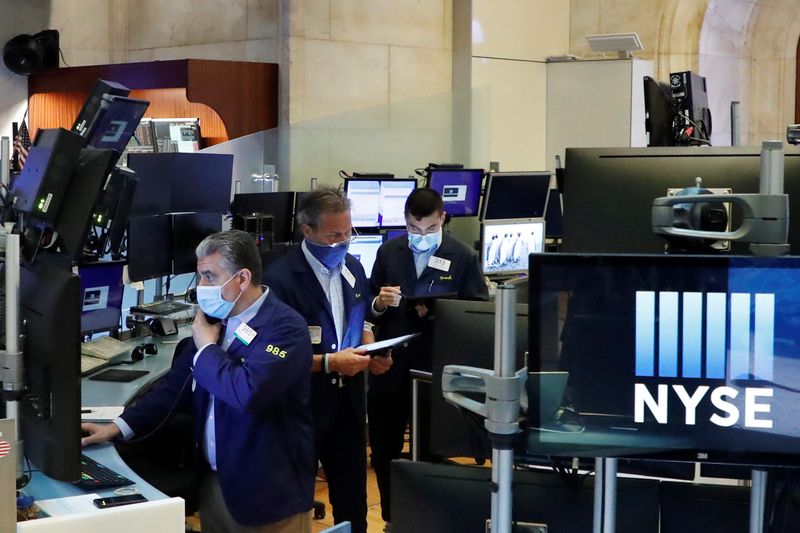By David Randall
NEW YORK (Reuters) - As the S&P 500 approaches fresh highs, some investors hope to pick up bargains in the battered U.S. real estate sector, where values of some major stocks have been cut in half this year.
Coronavirus-fueled lockdowns and a major shift toward working from home have weighed on residential and retail U.S. real estate investment trusts. The sector has slid 7% this year compared with a 3% gain on the S&P 500.
Yet investors say stocks in the sector could jump if a coronavirus vaccine loosens the pandemic's hold on the U.S. economy.
"You’re going to find more attractive spots in the REIT space than you will in some areas of the market like technology, that have the growth but are getting expensive,” said Mark Freeman, chief investment officer at Socorro Asset Management.
Among his largest positions is Alexandria Real Estate Equities Inc (N:ARE), which rents space for medical research, and Prologis Inc (N:PLD), which owns warehouses used for ecommerce fulfillment by companies such as Amazon.com Inc (O:AMZN).
Drugmakers will likely have tens of millions of doses of coronavirus vaccines in the early part of next year, Anthony Fauci, the top U.S. infectious diseases official, told Reuters in an interview on Wednesday.
Such a breakthrough would be a boon for companies like mall landlord Simon Property Group Inc (N:SPG), said John Creswell, executive managing director at Duff & Phelps Investment Management Co.
Shares of the company are down 58.2% for the year to date and trade at a trailing price to earnings ratio of 9.6, less than half of their 52-week high of 22.9.
The company, which is expected to report earnings on Aug. 10, is managing the effects of the pandemic by capping its spending until consumers once again feel comfortable congregating in large groups, Creswell said.
"They're showing that they can live with COVID, not just get through COVID," Creswell said.
An extension of unemployment benefits and another stimulus bill would likely provide an outsized lift to retail and residential REITs that have lagged hot sectors such as data centers, said Michael Knott, Green Street’s head of U.S. REIT Research.
"Given that consumption is such a critical aspect of GDP, bridging toward an environment that starts to look more normal will be pretty important to the retail and residential space," he said.
There are plenty reasons to be skeptical of a quick rebound. Enhanced unemployment benefits lapsed last week, and Congress has, as of Friday, had failed to pass another stimulus bill that would provide relief. Those enhanced benefits had funded continued spending for many of the more than 20 million Americans who have lost their jobs since February.
More than 30% of mall-based businesses and office tenants are expected to withhold at least part of their rent payments this year, according to estimates from Green Street Advisors.
Valuations in the sector also tend to vary widely, thanks to rallies in warehouse and data-center stocks that have skewed averages higher. Data center operator Digital Realty (NYSE:DLR) Trust, for example, is up 31% for the year to date and trades at a P/E of 55.2. On the whole, companies in the sector trade at 37 times earnings, compared to 24 for the S&P 500.
Still, Freeman of Socorro Asset Management has raised his exposure to the REIT sector, expecting that consumers will return to physical retail stores and workers will return to offices once the pandemic is over.
He also plans on adding to his exposure to apartments and retail centers, in part due to more attractive yields than those available from government or corporate bonds.

"We are going to see how fundamentals play out before we become much more aggressive, but we're starting to get much more comfortable with the space," he said.